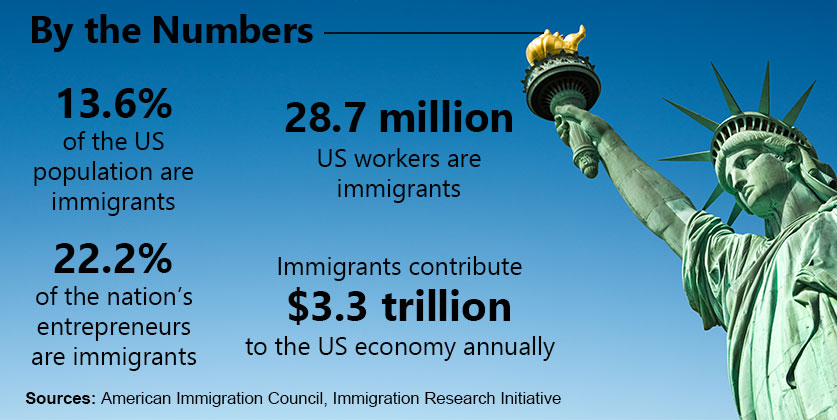- September 6, 2025
The economic fallout from immigration extremism is tangible

Access HERE
Washington, DC – Below is a column by Maribel Hastings from America’s Voice en Español translated to English from Spanish. It ran in several Spanish-language media outlets earlier this week:
The Associated Press recently reported that “more than 1.2 million immigrants disappeared from the labor force from January through the end of July, according to preliminary Census Bureau data analyzed by the Pew Research Center. That includes people who are in the country illegally as well as legal residents.”
The Donald Trump administration will see this as a victory, but for the economy of the states and the nation, it is bad news.
And now that Homeland Security (DHS) Secretary Kristi Noem has assured that ICE operations will be expanded across the country, it is likely that vital industries will continue to lose workers either because they are detained or because they leave their jobs for fear of being arrested, and that includes undocumented and authorized immigrants.
The exodus has been ongoing since Trump took office, making it clear that the indiscriminate raids and deportations, along with the self-deportations they generate, are starting to affect various industries, including agriculture, construction, services, hotels, and restaurants.
According to Pew, immigrant workers represent 20% of the U.S. workforce and constitute 45% of employees in the agriculture, fishing, and forestry sectors; 30% of all construction workers; and 24% of workers in the service sector.
Some may think that losing 1.2 million immigrant workers does not affect an economy with 170 million workers. But those workers are concentrated in vital industries and states that rely heavily on the labor of those immigrants, including undocumented workers.
For example, California has become ground zero for Trump’s militarized campaign of raids, detentions, and deportations. ICE is not only present in urban areas such as Los Angeles. They also go to agricultural fields. Farmers have seen a reduction in workers, resulting in lost or reduced harvests. This affects the production chain, with the potential to increase consumer prices.
A recent analysis by Economic Research and Insights Consulting concluded that “economists forecast losses of immigrant laborers and their skills, leading to labor shortages, production declines, and business failures. These, in turn, will lead to lost jobs and stagnating wages for native-born workers, shortages of goods and services, and price increases.”
Another study by the Bay Area Council Economic Institute and UC Merced concluded that with mass deportations and the end of temporary protected status for thousands of immigrants, California would lose up to $278 billion of its gross domestic product (GDP). Without undocumented workers, California’s agricultural industry GDP would contract by 14%. And in the construction industry, GDP would decline by nearly 16%.
The case of California is critical because the state is a major agricultural producer, supplying a wide range of fruits, vegetables, and other products for state, national, and international consumption. The prosperity and well-being of California agriculture are vital to the nation’s food security.
California produces 90% of the strawberries in the United States, 80% of the almonds, and 75% of the lettuce.
Two-thirds of California’s farmworkers are immigrants, and a quarter are undocumented, and all are terrified by Trump’s militarized raids.
In a recent press release following a violent ICE operation in the farm fields of Ventura, California, the United Farm Workers (UFW) union summed up what is at stake:
“These violent and cruel federal actions terrorize American communities, disrupt the American food supply chain, threaten lives and separate families. There is no city, state or federal district where it is legal to terrorize and detain people for being brown and working in agriculture. These raids must stop immediately.”
The original Spanish version is here.

